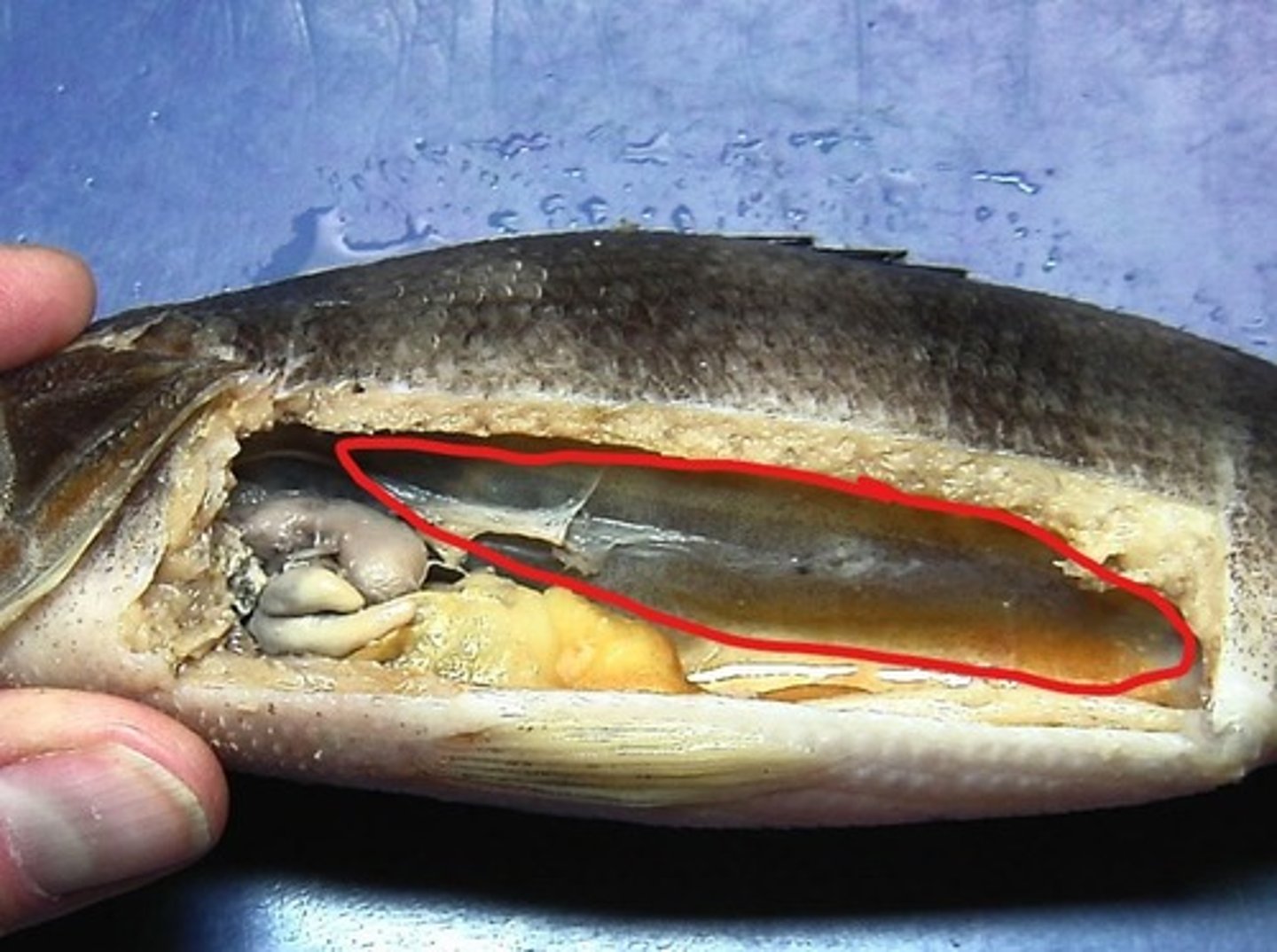Sp25 BIOL D013 02Y Marine Biology Lecture Exam #3/Lab Exam #3 Simple Version
1/57
There's no tags or description
Looks like no tags are added yet.
Name | Mastery | Learn | Test | Matching | Spaced |
|---|
No study sessions yet.
58 Terms
What are tetrapods?
Animals with four limbs (like turtles, birds, and mammals).
What is the class, phylum, and subphylum of reptiles?
Class: Reptilia, Phylum: Chordata, Subphylum: Vertebrata.
What is an ectotherm?
An animal that gets heat from the environment.
What big change helped reptiles live on land?
Amniotic egg (keeps embryo safe on land).
How many species of sea turtles are there?
7 species.
How is a sea turtle's sex decided?
By egg temperature (warm = female).
How do female turtles find their birth beach?
They use Earth's magnetic field.
What makes sea snakes special?
Flat tails, venom, and they give live birth.
Which reptile has a 4-chambered heart?
Crocodiles.
How do marine reptiles and birds get rid of salt?
Special salt glands remove extra salt.
What are the main groups of seabirds?
Shorebirds, surface feeders, diving birds, plunge divers.
What is an endothermic animal?
An animal that makes its own body heat.
What is countercurrent circulation?
Blood flow helps animals keep warm in cold areas.
What are the four groups of marine mammals?
Cetacea, Carnivora, Sirenia, Pinnipedia.
Which group of marine mammals eats only plants?
Sirenia (manatees and dugongs).
Which animals have flukes and blowholes?
Cetaceans like whales and dolphins.
What are the two types of whales?
Toothed whales (use echolocation) and baleen whales (filter feeders).
What helps marine mammals dive deep?
Slow heart rate, blood flow changes, oxygen-storing muscles.
What is echolocation?
Using sound to find things underwater.
What do breaching, spyhopping, and stranding mean?
Jumping, peeking, and beaching behaviors of whales.
What is an estuary?
Where freshwater meets saltwater; good for baby marine animals.
What are the types of estuaries?
Drowned rivers, sandbar-blocked, tectonic, and glacier-carved.
What does "brackish" mean?
Mix of fresh and salty water.
What is the main bottom type in estuaries?
Mud (low oxygen).
What are the main plants in estuaries?
Seagrasses, mangroves; not much algae due to cloudy water.
What's the difference between euryhaline and stenohaline?
Euryhaline = ok with salinity changes; stenohaline = not ok.
How do plants deal with salty water?
Special glands or store salt in their tissues.
What's special about salt marshes?
They have salt-loving plants and lots of dead plant food (detritus).
What's special about mangroves?
They have root "snorkels" and live in tropical coasts.
What group do corals belong to?
Phylum: Cnidaria, Class: Anthozoa.
What is the soft part of a coral called?
A polyp.
What's the difference between hermatypic and ahermatypic corals?
Hermatypic = build reefs, Ahermatypic = do not.
How do corals get food?
From algae (zooxanthellae), catching prey, and mucus nets.
What do corals need to grow?
Warm, shallow, clear water and something hard to grow on.
What is coral bleaching?
When corals lose their algae from stress (turn white).
What are Darwin's reef stages?
Fringing → Barrier → Atoll.
What are the parts of a fringing reef?
Flat area, crest (edge), and slope (deep with most coral).
How does an atoll form?
An island sinks and leaves a ring of coral.
Why are reefs so productive?
Algae recycle nutrients and support the reef.
What does the Crown-of-Thorns sea star eat?
Corals.
Why are birds considered endothermic?
They keep their body temperature steady.
How do probers and gleaners eat?
They pick food from mud or sand.
Why is deeper estuary water saltier?
Heavier saltwater sinks below freshwater.
What stage do reef corals have?
Only a polyp (no medusa).
Where does coral grow the most?
On the reef slope (deeper side).
What is the mussel's foot for?
Helps it move or burrow.
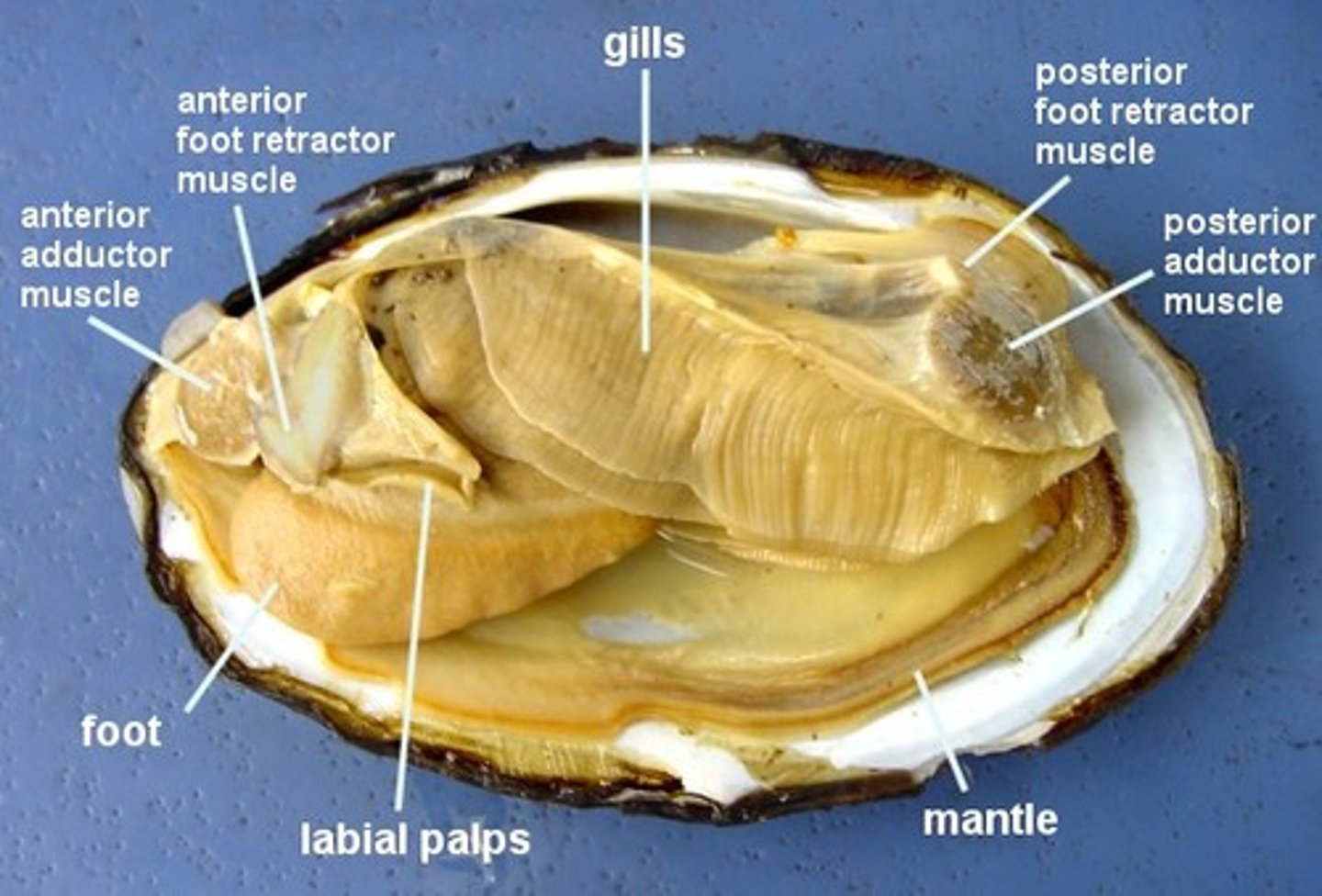
What do mussel gills do?
Help it breathe and sort food.
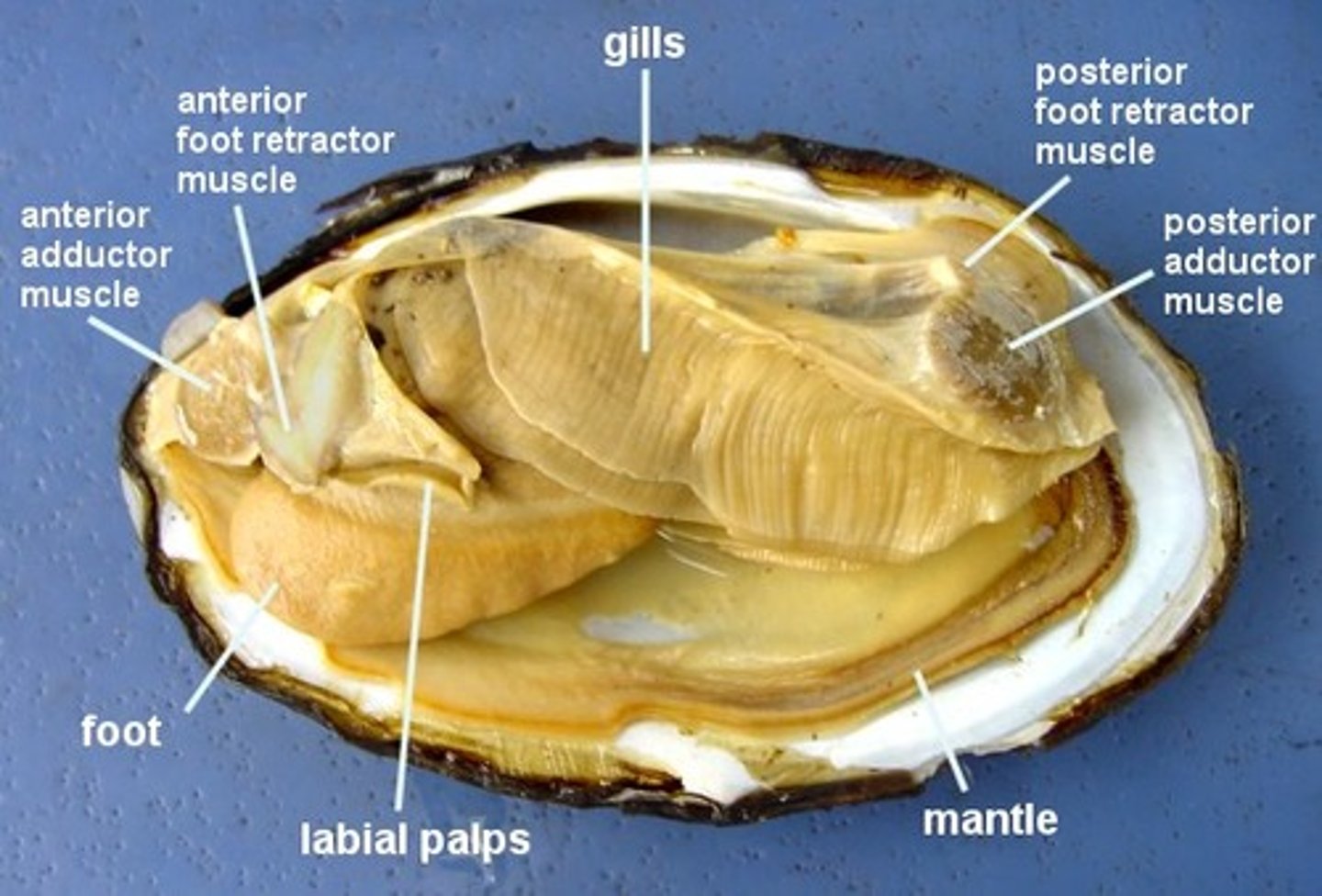
What does the mantle do in mussels?
Makes the shell.
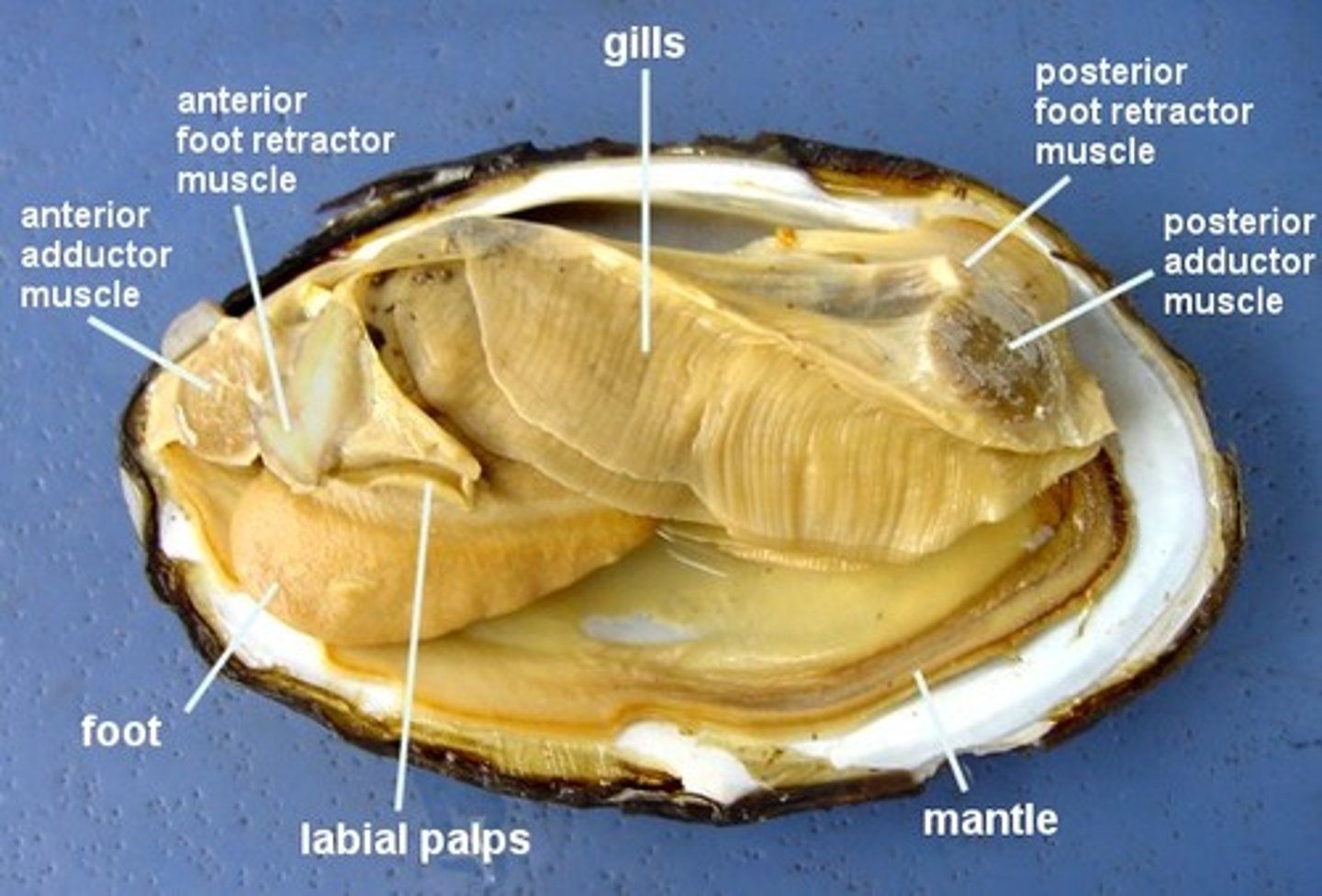
What are byssal threads?
Sticky fibers to attach to things.
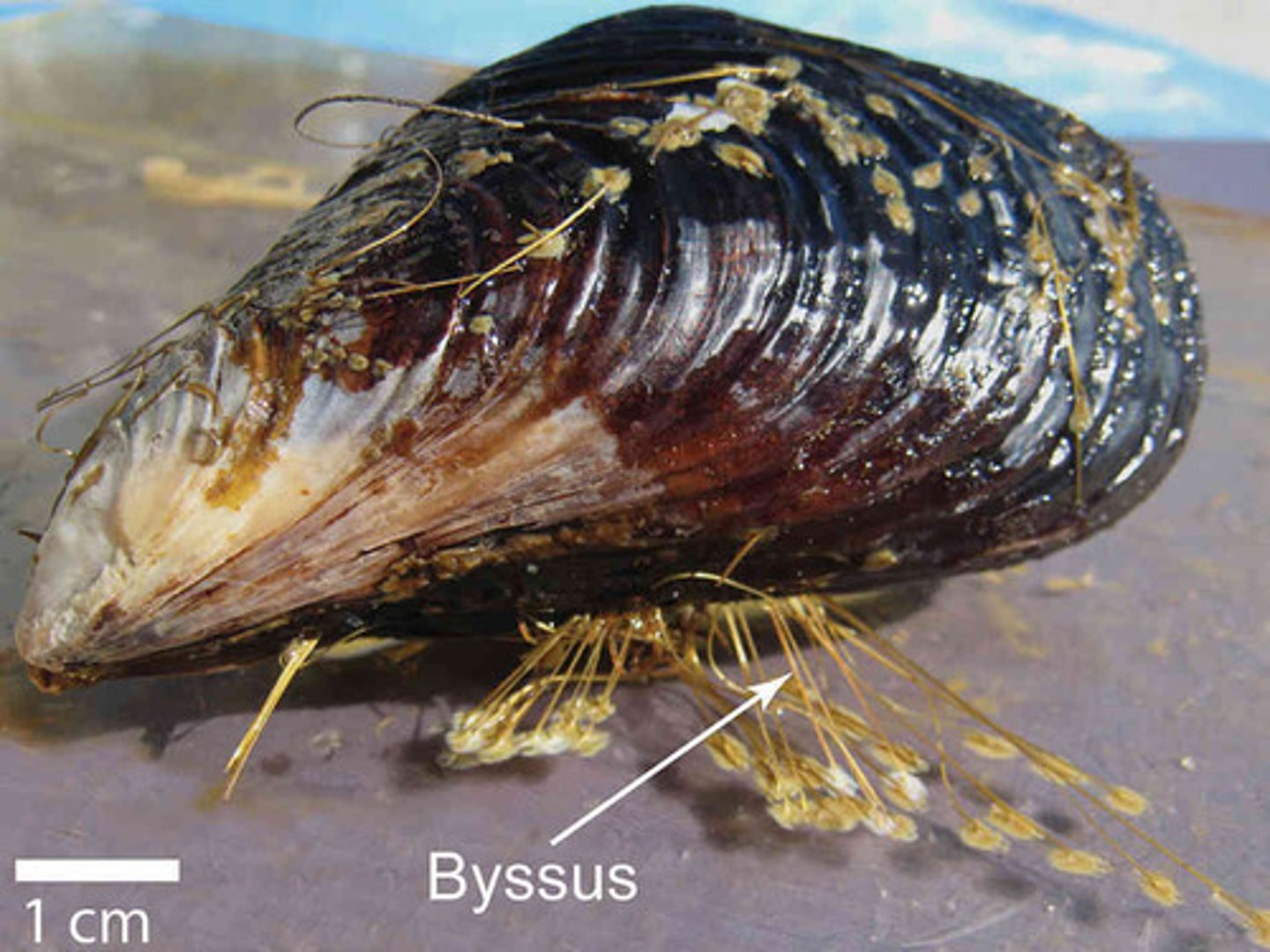
What is the squid's pen?
Thin shell inside for support.
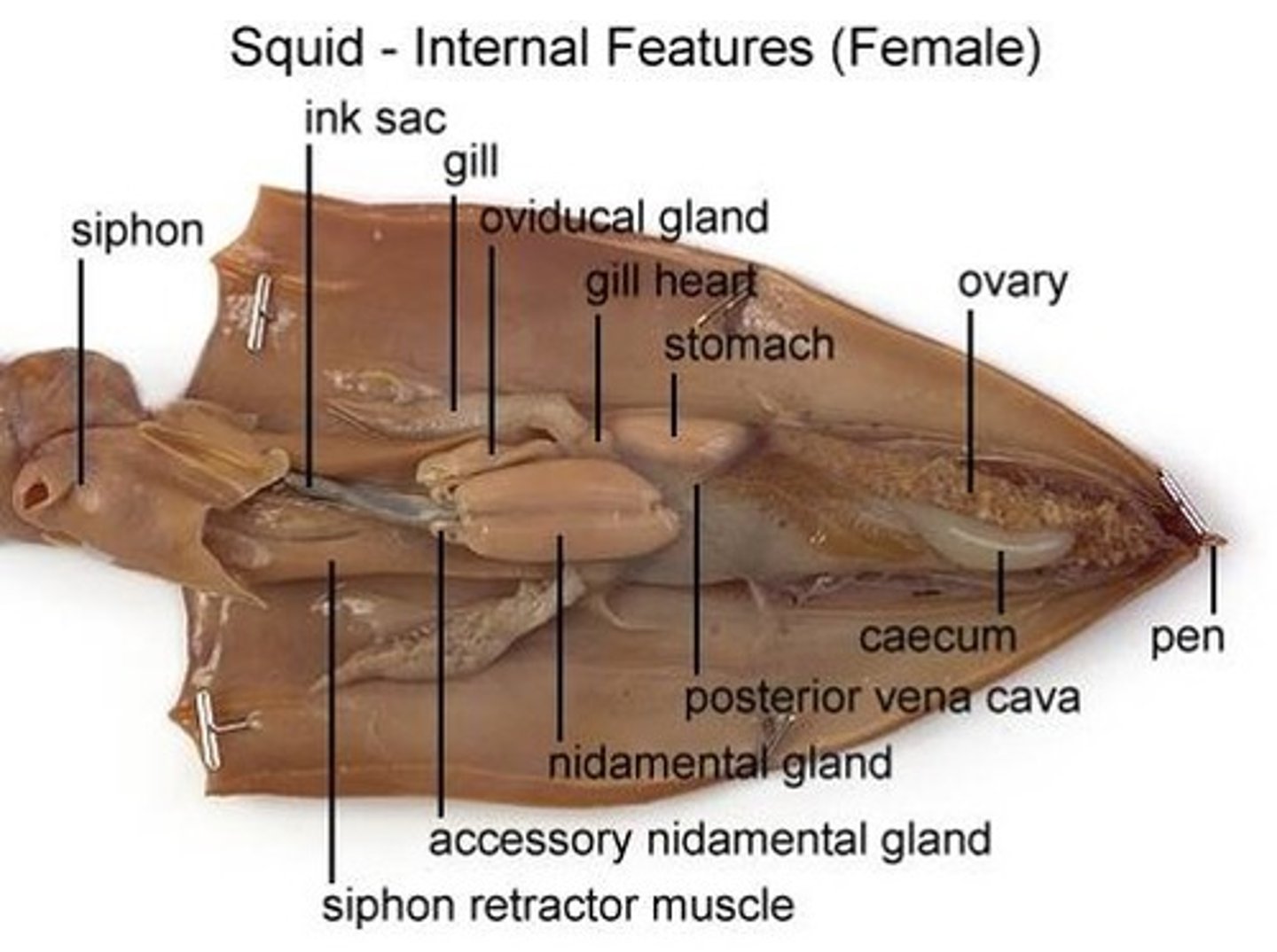
What are squid gills for?
Let them breathe.
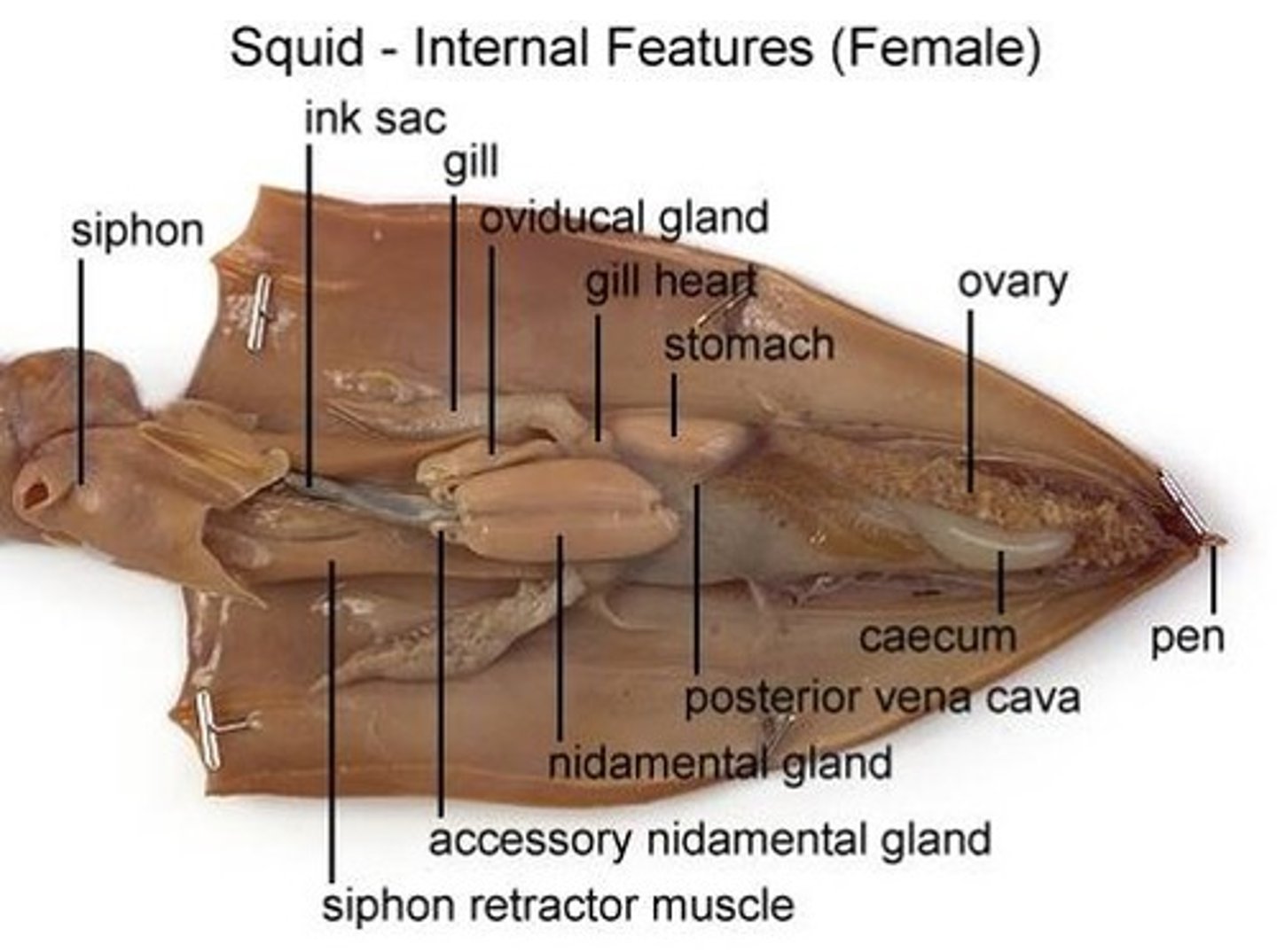
What is Aristotle's lantern in sea urchins?
Teeth for chewing food.
What is the ambulacral groove in sea stars?
Holds the tube feet.
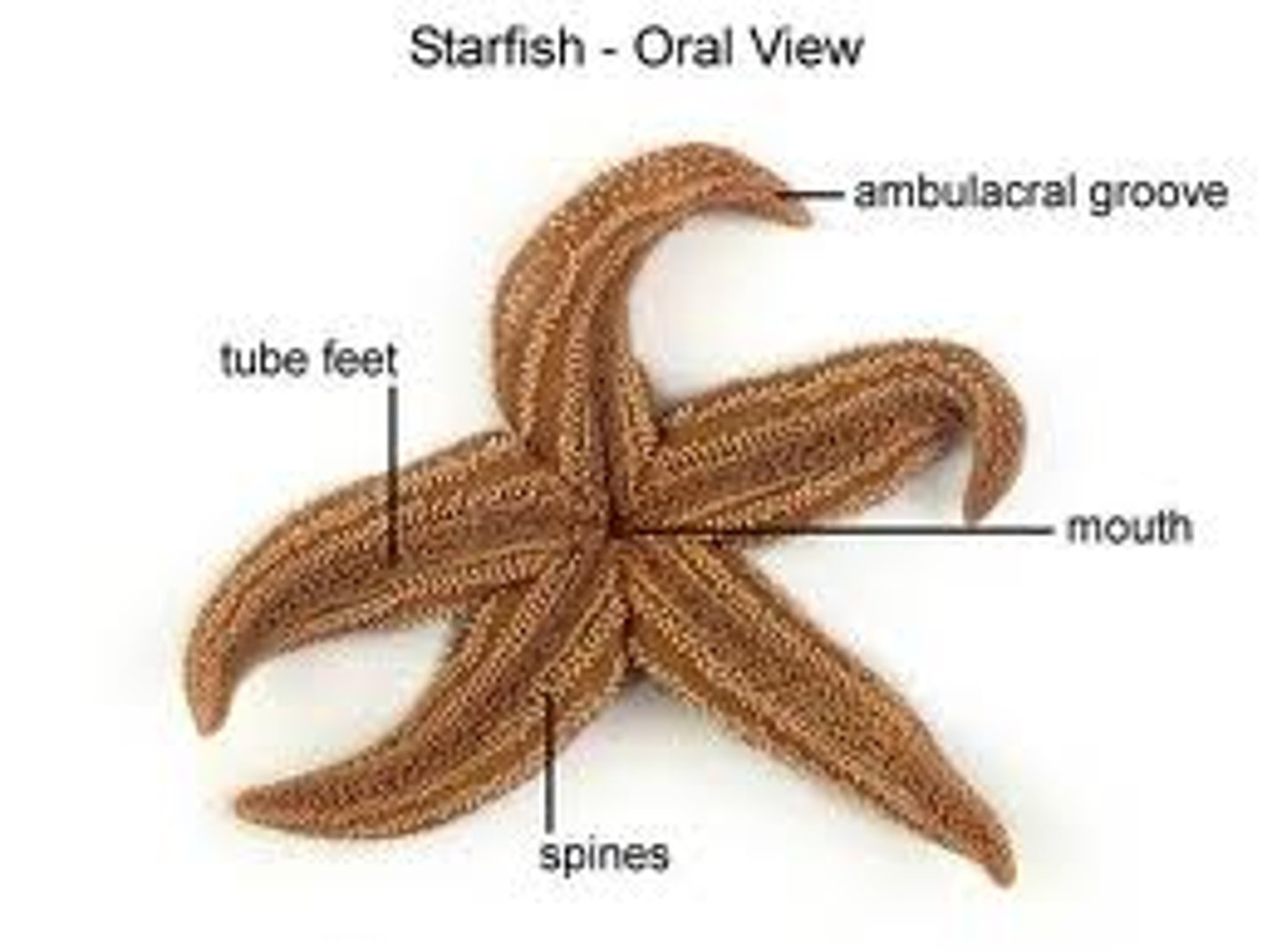
What is the ring canal in sea stars?
Moves water in the water system.
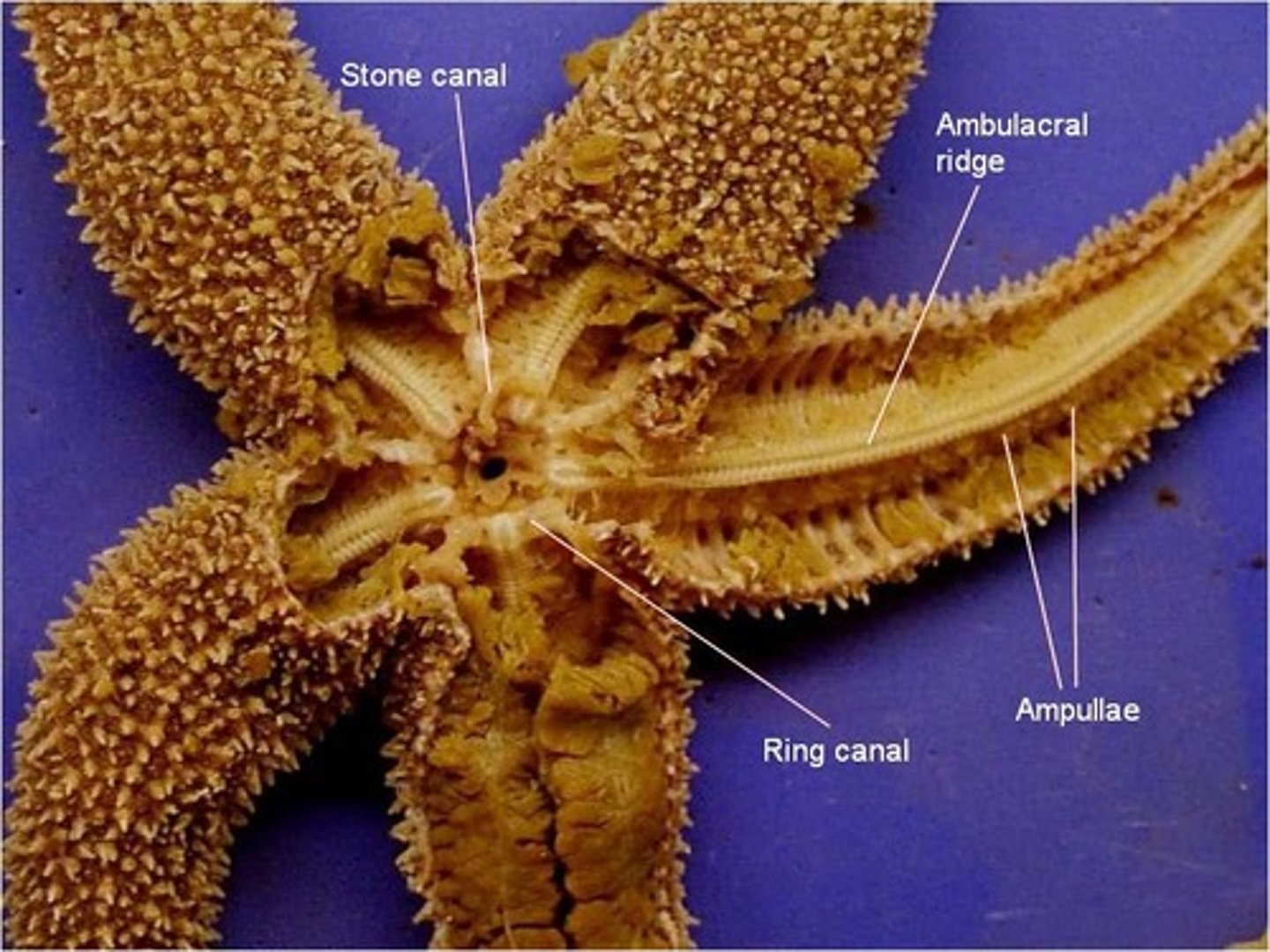
What are sea cucumber respiratory trees?
Help them breathe inside their body.
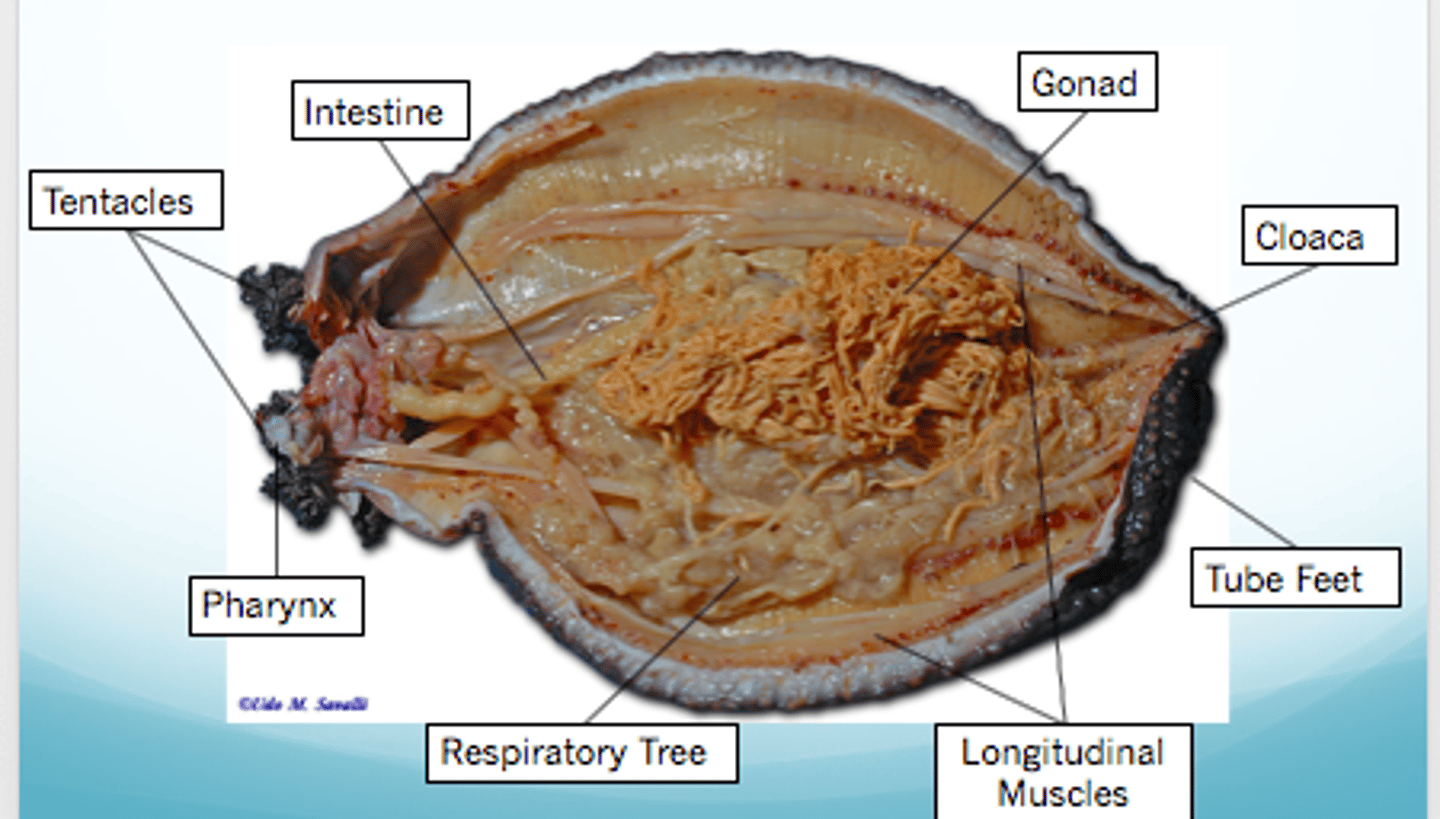
What are gill rakers in sharks?
Trap food from water.
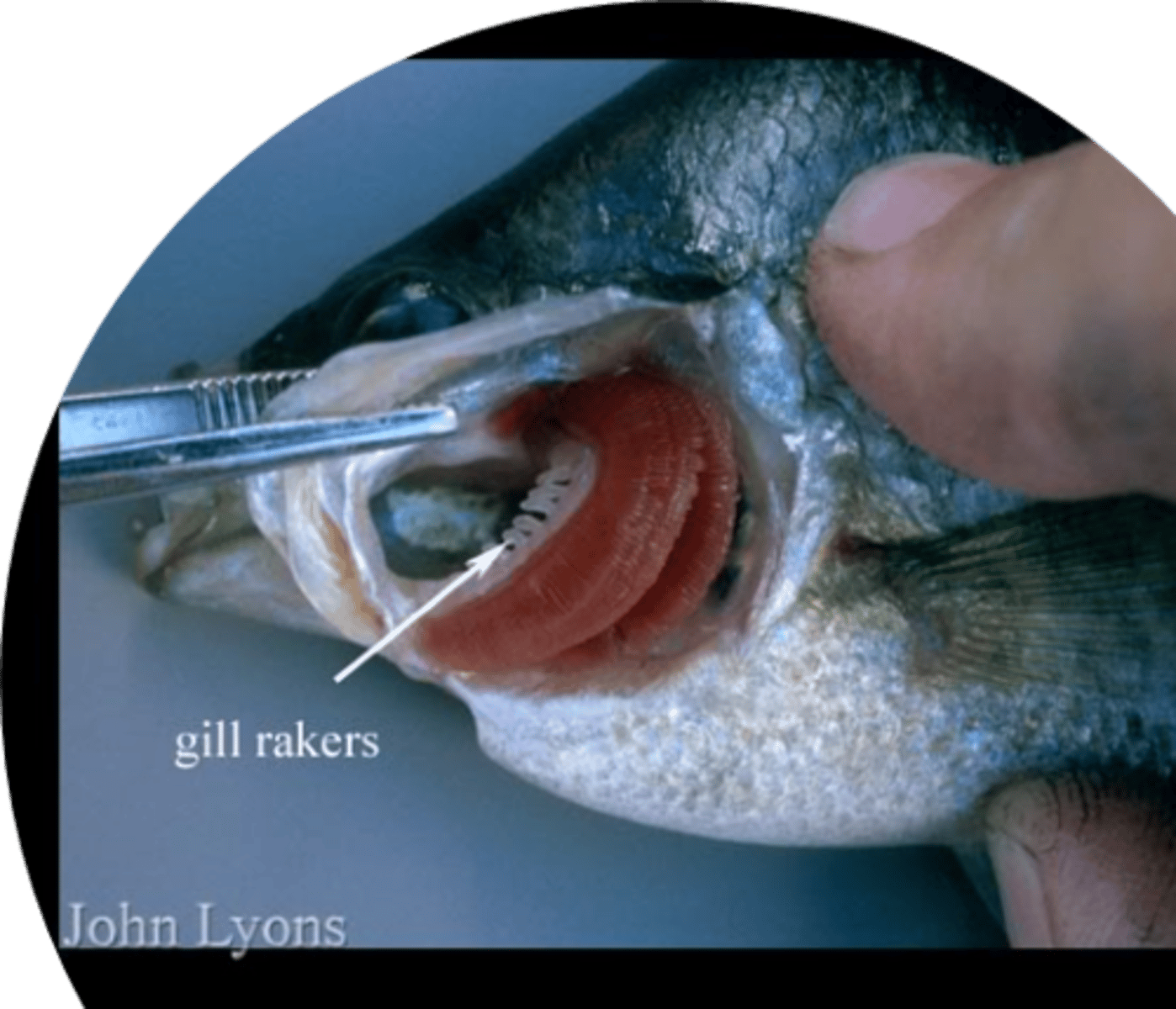
What is the spiral intestine in sharks?
Absorbs nutrients better with more surface area.
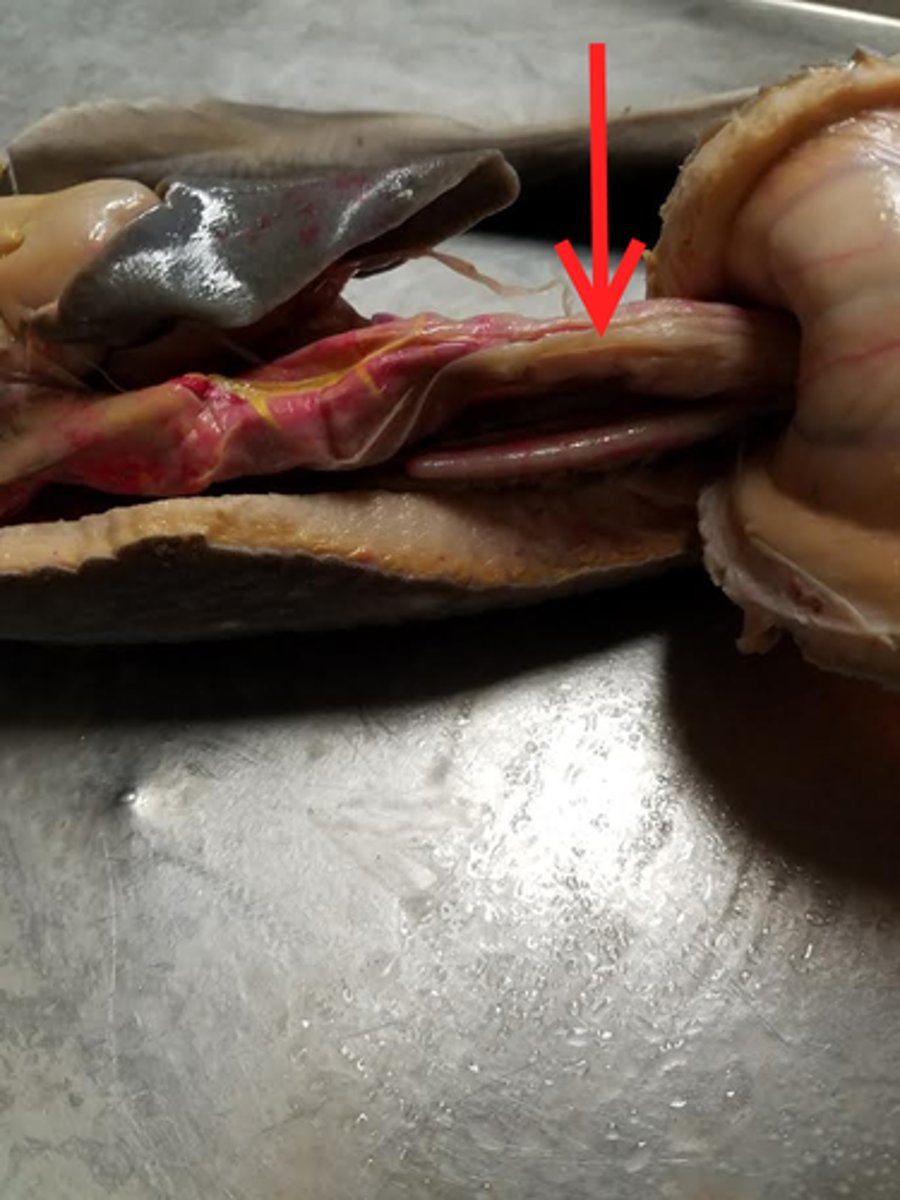
What is the perch's swim bladder?
Helps control floating and sinking.
